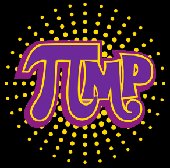
|
Info about Ginkgo Biloba
NOTICE: TO ALL CONCERNED Certain text files and messages contained on this site deal with activities and devices which would be in violation of various Federal, State, and local laws if actually carried out or constructed. The webmasters of this site do not advocate the breaking of any law. Our text files and message bases are for informational purposes only. We recommend that you contact your local law enforcement officials before undertaking any project based upon any information obtained from this or any other web site. We do not guarantee that any of the information contained on this system is correct, workable, or factual. We are not responsible for, nor do we assume any liability for, damages resulting from the use of any information on this site.
From: [email protected] (Mary Ann Mertens)
Newsgroups: alt.drugs
Subject: Re: Gingko Biloba
Date: 29 Oct 1993 01:54:58 GMT
Message-ID: <[email protected]>
From article <[email protected]>, by [email protected] Jack Mahanglin, Esq.:
> I've been taking Gingko as a vitamin supplement and have noticed a marked
> increase in the level of intensity I am able to think. It's supposed to
> be a "smart" drug, but I didn't realize the effects were so apparent. Supposedly,
From Smart Drugs and Nutrients:
GINKGO BILOBA: A Nootropic Herb?
Ginkgo biloba is the oldest species of tree known, dating back 300 years.
Extracts from the leaves of the ginkgo biloba tree have been used by Chin-
ese medicine for thousands of years. European physicians write over 1.2
million prescriptions per month for it. Ginkgo biloba is used to improve
cerebral circulation, mental alertness, and overall brain functioning.
More than 34 human studies on ginkgo have been published since 1975, show-
ing that ginkgo works by increasing blood flow throughout the body and
brain. Ginkgo increases the productions of adenosine triphosphate (ATP,
the universal energy molecule). It also improves the brain's ability to
metabolize glucose, prevents platelet aggregation inside arterial walls by
keeping them flexible, improves the transmission of nerve signals, and
acts as a powerful antioxidant.
Ginkgo biloba leaf is effective for people with symptoms of reduced blood
flow to the brain and extremities. It has been shown to be helpful with
many of the complaints of the elderly such as: memory loss, slow thinking
and reasoning, depression, dizziness, ringing in the ears, headaches, and
senile macular degeneration (a major cause of blindness).
One study even shows significant improvement in people who have both Park-
ingson's and Alzheimer's disease. In this study 25 people w/ Parkingson's
disease and signs of Alzheimer's disease were given ginkgo extract daily
for one year. They were tested with standard tests, clinical evaluations,
and a new computerized EEG. The scores improved significantly.
CITE: Funfgeld, E.W. "A natural and broad spectrum nootropic substance
treatment of SDAT - the gingko biloba extract".
from Progress in Clinical and Biological Research, 1989, 317
(pp 1247-1260)
One study does not prove that Gingko biloba is efficacious in the treatment
of these diseases. However, ginkgo is safe, inexpensive and easily obtain-
ed, and people with Parkingsons and/or Alzheimer's might consider experi-
menting with it.
PRECAUTIONS: No negative effects have been reported in the literature even
in very large quantities.
DOSAGE: Most research has been done with a gingko biloba extract which con-
tained a 24% concentration of flavinoid extract. At this strength, the
usual dosage is 120-160mg per day taken in three divided doses. However,
many gingko products are lower in potency, and may require dosages as high
as 1000mg per day. Three to six months is probably needed to evaluate the
results.
Your welcome. Buy the book, (and their sequal, smart drugs II):
"Smart Drugs and Nutrients" by Ward Dean & John Morgenthaler (1990)
ISBN# 0-9627418-9-2 ($12.95)
"Smart Drugs II" by Ward Dean / John Morgenthaler / Steven Wm. Fowkes (1993)
ISBN# 0-9627418-7-6 ($14.95)
SD2 covers totally different material than the first book:
Deprenyl, Melatonin, Milacemide, Nimodipine, Phosphatidylserine,
Pregnenolone, Ondansetron and Zatosetron.
The first book has almost everything else you've ever heard of:
Pyrrolidone types (Piracetam, Oxiracetam), Hydergine, Vasopressin,
Fipexide, Vinopocetine, Acetyl-L-Carnitine, Centrophenoxine,
Choline, AL721, DHEA, DMAE, Gerovital GH-3, Ginkgo, Ginseng,
Idebenone (CoQ10), Phenytoin (dilantin), Inderal, Vincamine, etc.
(and yes, I know Ginkgo is spelled "gingko" a dozen times in the above
transcript - sue me, I was baked)
|

|

